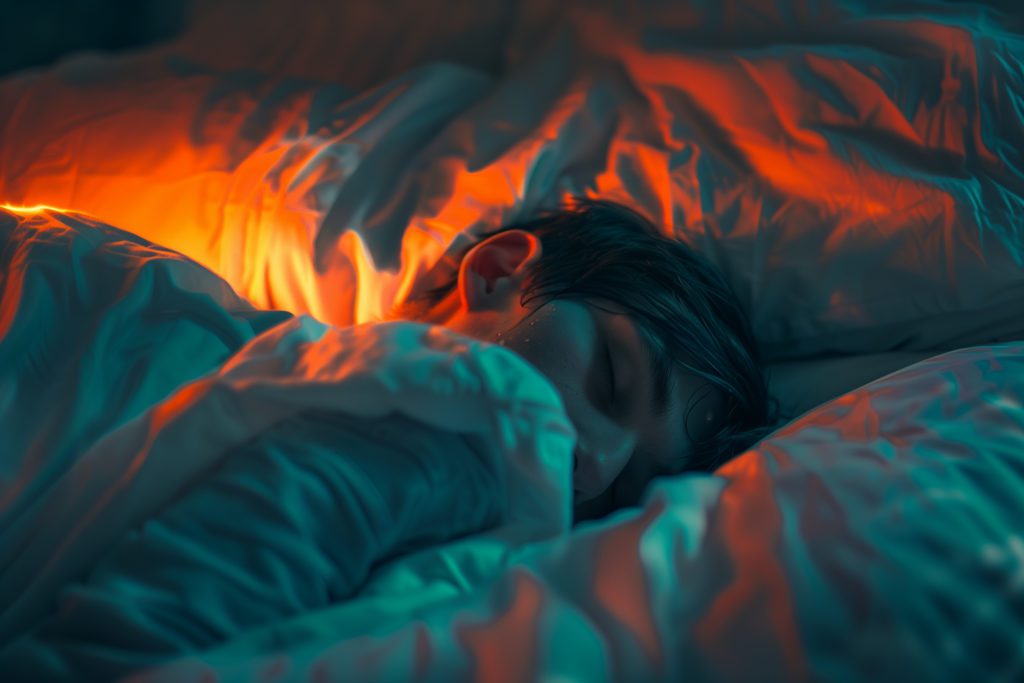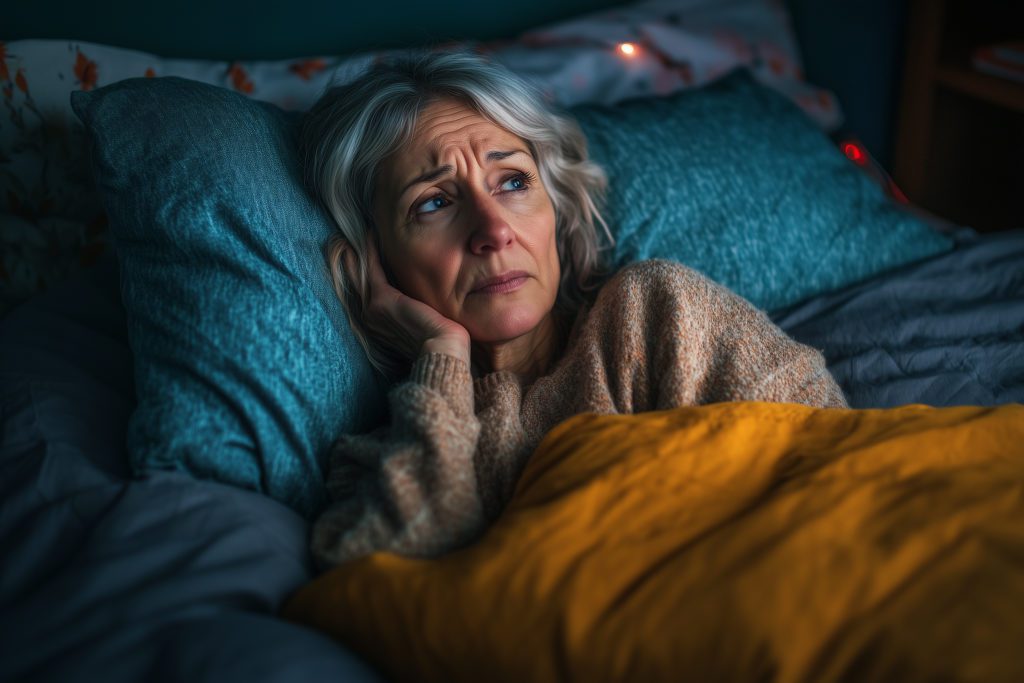
Nutrition and Exercise: Their Impact on Sleep Quality During Menopause
Explore the link between menopause and sleep to see if changes to diet and exercise can reduce the effects of menopause that cause poor sleep quality.

The relationship between menopause and sleep can have a dramatic impact on the quality of life for women in this stage of life. Sleep disturbance is a core symptom of menopause. In fact, most women experience fitful rest and night sweats that make waking up in the morning feel impossible.
Simply "riding out" menopause symptoms can be a difficult strategy when menopause can last between seven and 14 years for many women. While the changes that come with menopause are inevitable, sleep-related symptoms of menopause can be managed in a number of different ways. For many women, adopting new nutrition and exercise routines can be a way to mitigate the negative effects of menopause on sleep.
Let’s take a look at the impact of menopause on sleep and how exercise and nutrition can help.
Menopause and Sleep: Why Does Menopause Hurt Sleep Quality?
The poor sleep quality that is a hallmark of menopause is mostly caused by hormonal changes. When understanding the link between sleep and menopause, it's helpful to go over what's actually being experienced during menopause. As you may already know, menopause is a stage in a woman's life that occurs when the ovaries stop producing two reproductive hormones called estrogen and progesterone. The most pronounced symptom of menopause is the cessation of menstruation. However, a myriad of symptoms will come into the picture both before and after menstruation officially stops.
When the ovaries reduce estrogen and progesterone production, this pronounced drop in hormones will generally bring about what are known as vasomotor symptoms (VMS). Vasomotor symptoms are considered forms of temperature dysfunction that are associated with menopause. The two most common ones are hot flashes and night sweats.
Experienced by around 80 percent of menopausal women, hot flashes can stick around for up to five years. A hot flash can feel like a sudden burst of heat that spreads throughout the body. Night sweats are bursts of heat that occur at night. In fact, waking up in what feels like a pool of sweat with soaked sheets and pajamas is a common scenario for women going through menopause. These vasomotor symptoms can be disruptive for many women and significantly impact sleep.
How Women Are Using Nutrition and Exercise to Improve Sleep During Menopause
Many women choose to work with their doctors to address the hormonal changes that occur during menopause using hormone replacement therapy or similar interventions. While every avenue should be discussed with your care provider when coming up with the best plan for your health and well-being, women are increasingly seeking natural ways to improve sleep during menopause. For many, that means changes in diet and exercise. Let's start with exercise.
How Does Exercise Improve Sleep During Menopause?
When researchers looked at the effects of exercise intervention on improving sleep in menopausal women, they found that exercise interventions were effective enough to be recommended. Some common modes of exercise that can potentially be helpful include walking, yoga, and meditative exercise. In addition, research shows that high levels of physical activity may help to reduce menopausal symptoms overall.
Additional research also shows that exercise can improve sleep quality and insomnia symptoms in perimenopausal women. When the goal is improving sleep quality and staving off insomnia, the recommended "dosage" of exercise is 30 to 60 minutes at least three times a week. Improvements in sleep quality were generally seen in 10 to 12 weeks after beginning an exercise regimen.
If you're struggling with poor sleep during menopause specifically because of hot flashes, there's some extra motivation to work more physical activity into your life. In one study, sedentary women who jogged or pedaled four to five times a week for 45 minutes at a sweat-inducing rate experienced a reduction in basal core temperature.
This is significant because this change was shown to push thresholds for sweat rate and skin blood flow lower. Ultimately, women in the study experienced a 60 percent reduction in frequency of hot flashes. It's believed that exercise reduces hot flashes by regulating the body's thermoregulatory system in a way that lowers core body temperature and improves heat-dissipation mechanisms.
How Does Nutrition Improve Sleep During Menopause?
Nutritional interventions for sleep and menopause can work in a few different ways. For example, some research shows that simply integrating certain foods or ingredients into your diet can help to alleviate sleep disturbances during menopause. Many women actually use tart cherry to improve sleep during menopause. Tart cherry juice is commonly used as a natural sleep aid due to this deep-red fruit's nutrient-rich profile that contains serotonin, melatonin, tryptophan, and polyphenols.
For women on the further end of menopause, adopting a diet that emphasizes foods with low glycemic indexes may be beneficial for improving sleep quality. A study involving nearly 78,000 postmenopausal women found that consuming foods that had a low glycemic index is associated with a reduced risk for insomnia.
Foods that have a low glycemic index include nuts, whole grains, and vegetables. The slow absorption rate of these foods may contribute to slower and lower rises in blood glucose and insulin that allow for better sleep. Meanwhile, participants with diets that rated high on the glycemic index were 11 percent more likely to have insomnia.
You Don't Have to Settle for Bad Sleep During Menopause
Menopause is an experience that can last for more than a decade for many women. That's far too long to live with poor sleep. Fortunately, the medical community knows more than ever before when it comes to interventions that can reduce hot flashes and night sweats to restore restful, satisfying sleep.
How can you know if the interventions you're trying are actually making a difference? Pillow offers simple sleep-tracking technology that lets you analyze sleep habits and sleep quality to give you a customized, real-time sleep analysis.

Written by
Emily Mendez
Emily Mendez is a former therapist and mental health author. She is one of the leading voices in mental health. Emily's writing has appeared in eCounseling, SonderMind, and more. Emily is frequently interviewed by Healthline, Fatherly, INSIDER, Family Circle, and other national media for her advice and expert opinion on the latest mental health topics.
Download Pillow
Get help
Press & News
Legal
Connect
X (Twitter)
Company
Copyright © Neybox Digital Ltd.



